Novak Djokovic’s 2022 Australian Open debacle: What’s happened so far? What happens next? | Tennis News
We answer the key questions and provide the latest updates as Novak Djokovic’s battle to compete in the Australian Open takes another turn after his visa was cancelled for a second time.
In a nutshell, what’s happened?
World No 1 Djokovic flew to Australia with a ‘vaccine exemption’ and arrived in Melbourne on Wednesday January 5, but was denied entry into the country after nine hours at the airport. The Serb’s visa was cancelled due to it not being one that allows for medical exemptions, after which he was moved to hotel quarantine as his team launched an appeal.
On the evening of Monday January 10 local time, Judge Anthony Kelly from the Federal Circuit Court of Australia quashed the visa cancellation and ordered the Australian Government to pay legal costs and release Djokovic from detention within half an hour.
However, after four days of deliberation, Immigration Minister Alex Hawke decided to use his personal powers and reimpose the penalty on Friday.
Novak Djokovic – Sequence of events
| January 4 – Djokovic announces he will be travelling to Australia with an ‘exemption permission’. |
| January 5 – While Djokovic is airborne, Australia’s Prime Minister Scott Morrison says the athlete will be on the “next plane home” if he cannot provide “acceptable proof” that his exemption is legitimate. |
| Acting Sports Minister Jaala Pulford highlights that the local government of Victoria, where the Australian Open is held, will not support Djokovic’s visa application. |
| The world No 1 arrives at Melbourne Airport around 11.30pm local time. |
| January 6 – Around 3.15am, Djokovic’s father reports that his son is being held in isolation in Melbourne Airport. |
| At 5am, Goran Ivanisevic releases an image on social media of himself and another member of Djokovic’s team seemingly waiting for the world No 1. The post is captioned, ‘Not the most usual trip Down Under’. |
| Around 8.15am local time, Djokovic’s visa is confirmed to have been denied by the Australian Border Force. |
| Djokovic is moved to quarantine hotel while his legal team appeal visa cancellation. |
| The appeal against his visa cancellation is adjourned until Monday (Jan 10) morning Australian time. |
| January 7 – Australia Home Affairs Minister Karen Andrews says Djokovic is “free to leave any time” and is not being detained. |
| Djokovic breaks silence in Instagram post on Friday, thanking his fans for their “continuous support”. |
| January 8 – Submission from Djokovic’s lawyers on Saturday reveals positive Covid-19 test in December. |
| January 9 – Home Affairs Minister Andrews has a submission to delay the hearing until Wednesday (Jan 12) rejected by Judge Anthony Kelly. |
| Submission from Australian government lawyers says Djokovic had not been given an assurance he would be allowed to enter the country with his medical exemption. |
| January 10 – Djokovic wins appeal. Judge Anthony Kelly quashes visa cancellation, and orders the Australian Government to pay legal costs and release Djokovic from detention. |
| Djokovic takes to social media to confirm that he remains intent on competing at the Australian Open. |
| The ATP condemns the series of events as “damaging on all fronts” and calls for greater clarity going forward regarding travel regulations and requirements facing players. |
| January 14 – Immigration Minister Alex Hawke cancels Djokovic visa for second time |
| January 15 – Djokovic detained in immigration detention hotel again after pre-trial hearing |
| Hearing with Federal Court of Australia set for Sunday at 9.30am (10.30pm on Saturday UK time) |
What happens next for Djokovic?
The parties have already been back in court and a resolution to this saga will not come until Djokovic’s appeal against the re-cancellation of his visa, which will be held at 9.30am on Sunday (10.30pm on Saturday UK time).
The Serb is scheduled to play his first-round match against compatriot Miomir Kecmanovic at the Australian Open on Monday.
Hawke cited “health and good order grounds” and said he believed it was in the public interest to send Djokovic home.
The decision to overturn the initial revocation was made because the border force did not follow procedure rather than because the judge concluded they did not have grounds.
Djokovic was not detained on Friday night but returned to an immigration detention hotel on Saturday – after an online pre-trial hearing – ahead of his appeal.
His lawyers are appealing against what they called an “irrational judgement”, and his hearing is early Sunday morning (local) before the Federal Court of Australia.
Some in Belgrade believe Djokovic had been made a political scapegoat by the government of Australian Prime Minister Scott Morrison, who must hold an election by May.
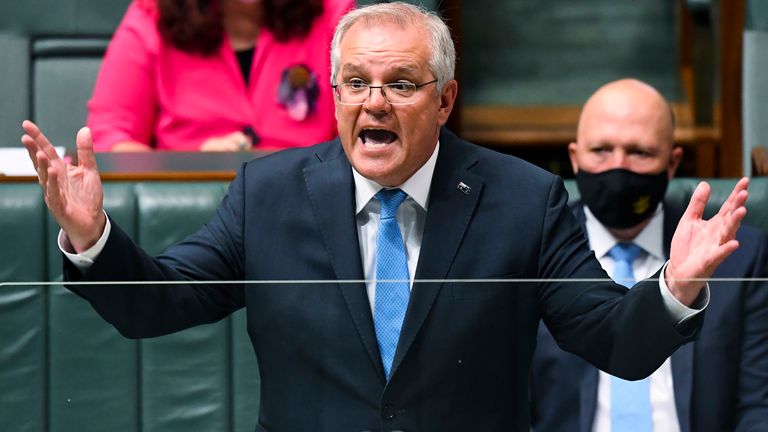
“I note the Minister for Immigration’s decision in relation to Mr Novak Djokovic’s visa. I understand that following careful consideration, action has been taken by the Minister to cancel Mr Djokovic’s visa held on health and good order grounds, on the basis that it was in the public interest to do so. This pandemic has been incredibly difficult for every Australian but we have stuck together and saved lives and livelihoods.”
Australian Prime Minister Scott Morrison
What if he loses his appeal? What are the implications?
The world No 1 would be deported and the Australian Open draw would need to be rejigged. Should the decision come before an order of play for Monday is announced – which is just about feasible – the seeds would be moved and fifth seed Andrey Rublev would take Djokovic’s place.
Should it come after, a lucky loser would slot in, unbalancing the top section of the draw which also includes Cameron Norrie, Alexander Zverev and Rafael Nadal.
If Djokovic is deported, he faces a potential three-year ban from travelling to Australia and would only be permitted to return in ‘compelling circumstances that affect the national interest’.
What happened during Monday’s court hearing?
Lawyers representing the Australian state presented their case, while Nick Wood represented the world No 1 and put forward their case on why his deportation should be quashed and visa reinstated.
They stated that Djokovic had declared he cannot be vaccinated for medical reasons and pointed to guidance that states vaccination can be deferred for six months if an infection of Covid-19 is confirmed through a PCR test.
Djokovic said during his interview with Border Force at Melbourne Airport that he has had Covid-19 twice – once in June 2020 and once again in December 2021, confirmed by PCR on December 16, 2021.
Djokovic also produced medical exemption documents from Tennis Australia and a panel of experts established by Victoria’s state government
Judge Anthony Kelly expressed his sympathy with Djokovic’s situation and said he was “agitated” about the issue of Djokovic’s medical exemption. He asked: “What more could this man have done?”
“Here, a professor and an eminently qualified physician have produced and provided to the applicant a medical exemption,” Judge Kelly said.
“Further to that, that medical exemption and the basis on which it was given was separately given by a further independent expert specialist panel established by the Victorian state government and that document was in the hands of the delegate.”
Djokovic’s lawyer, Nick Wood, has argued the notice of intention to cancel his visa was defective because it was made on “a confusing blend of two grounds”.
He also argued that Djokovic was treated at the airport as if access to lawyers “couldn’t possibly” be of assistance in the matter and was not given a reasonable chance to respond to the notice.
The court released a transcript of Djokovic’s interview with Border Force , during which the Serb confirmed he has had Covid-19 twice and is not vaccinated.
In the transcript, when asked why he was travelling to Australia, Djokovic said: “I’m a professional tennis player and the main reason for me coming to Australia is participating in the Australian Open in Melbourne, Victoria.”
In response to a question about his vaccination status, he said: “I am not vaccinated.”
When asked if he had ever had Covid-19, Djokovic replied: “I had Covid twice, I had Covid in June 2020 and I had Covid recently in – I was tested positive -PCR – December 16, 2021.”
Is Novak Djokovic vaccinated?
Djokovic has still never publicly revealed whether he is vaccinated against Covid-19, but has repeatedly criticised mandates ruling that players must be double-jabbed.
However, the court released a transcript of Djokovic’s interview with Border Force, during which the Serb confirmed that he is not vaccinated.
In the transcript, when asked why he was travelling to Australia, Djokovic said: “I’m a professional tennis player and the main reason for me coming to Australia is participating in the Australian Open in Melbourne Victoria.”
In response to a question about his vaccination status, he said: “I am not vaccinated.”
In April 2020, Djokovic said on a Facebook Live chat he was “personally opposed to vaccinations,” while his wife, Jelena, has promoted discredited social media messages linking Covid-19 to 5G technology.
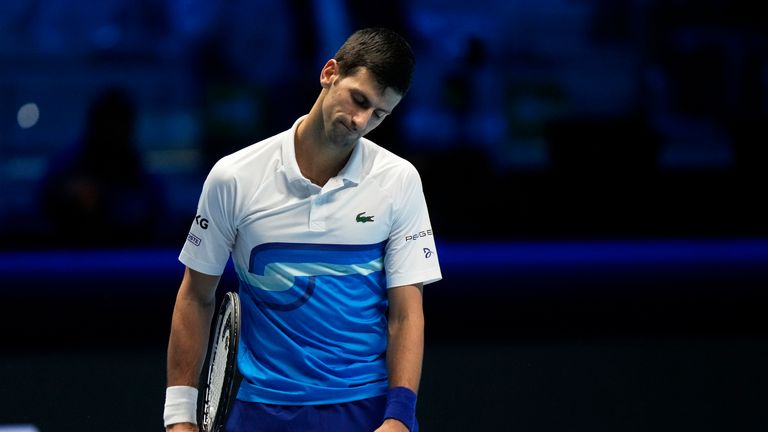
Djokovic’s core appeal documents have revealed to the public that he has asked for a medical exemption based upon a recent positive Covid-19 test and a valid visa
What are Australia’s current rules of entry?
Australia currently requires all foreign visitors entering the country to be double vaccinated, and to hold a valid and appropriate visa.
There are medical exemptions whereby some travellers may enter the country unvaccinated, but all of these are viewed and assessed alongside visas by Australia Border Force upon the traveller’s arrival to immigration.
- The 2022 tournament due to start on Monday, January 17.
- The draw is set to take place on Thursday, January 13.
Australia Prime Minister Morrison also confirmed Australia Border Force outlined expectations of the federal government to Tennis Australia in letters sent in November regarding vaccinated and unvaccinated entry, and a recent Covid infection was not a valid reason.
Criteria listed by the Australian Technical Advisory Group as permissible reasons for a medical exemption range from acute major medical conditions to any serious adverse event attributed to a previous dose of Covid-19 vaccine.
Why did Australia Border Force deny him entry?
Upon landing in Melbourne, in addition to the visa error, Djokovic’s ‘vaccine exemption’ was deemed not sufficient for border officials with regard to entry into a country that has strict requirements.
The Serb was held for more than nine hours at the airport before ultimately being denied entry, as the federal government has a higher authority than previous decisions and statements made by Tennis Australia, which had been endorsed by the state government.
An Australian Border Force (ABF) statement read: “Mr Djokovic failed to provide appropriate evidence to meet the entry requirements to Australia, and his visa has been subsequently cancelled.
“Non-citizens who do not hold a valid visa on entry or who have had their visa cancelled will be detained and removed from Australia.
“The ABF can confirm Mr Djokovic had access to his phone.”

Australian Health Minister Greg Hunt said that Djokovic’s exemption ‘did not pass the standards of proof that were required by the Australian Border Force’ after he was denied entry to the country
Who initially granted Djokovic a vaccine exemption?
Having been originally named in Serbia’s team for the ATP Cup in Sydney, Djokovic then withdrew, leading to mystery surrounding his participation in the 2022 Australian Open.
Last Tuesday, Djokovic then revealed on his social media channels that he had been given an “exemption permission” to travel and play at the Australian Open without a Covid-19 vaccination. The response in Australia and around the world was hugely negative.
Happy New Year! Wishing you all health, love & joy in every moment & may you feel love & respect towards all beings on this wonderful planet.
I’ve spent fantastic quality time with loved ones over break & today I’m heading Down Under with an exemption permission. Let’s go 2022! pic.twitter.com/e688iSO2d4
— Novak Djokovic (@DjokerNole) January 4, 2022
The Australian Open released a statement saying his medical exemption had passed a ‘rigorous, multi-step’ review, which involved two separate independent panels of medical experts.
These were an expert panel made up of doctors from the fields of immunology, infectious disease and general practice, and the Independent Medical Exemption Review Panel appointed by the Victorian Department of Health.
Tennis Australia – the sporting body which runs Australia’s Grand Slam – and the Victorian Department of Health had drawn up and finalised plans for Covid-19 vaccination protocols for the Australian Open, and were the ones who granted Djokovic his initial medical exemption.
What were the issues with Djokovic’s visa?
Having landed in Melbourne at around 11.30pm local time on Wednesday evening on a flight from Dubai, the 20-time grand slam winner reportedly attempted to enter the country on a visa that did not permit medical exemptions for being unvaccinated.
According to reports, Djokovic and his team submitted the wrong type of visa, which caused heavy delays at the airport.
When Border Force contacted government officials in Victoria to sponsor the visa, they refused to do so.
Indeed, the local government of Victoria, the state where the Australian Open is played, said it would not support Djokovic’s application, with Acting Sports Minister Jaala Pulford confirming as much in a statement on social media.
Update on #AusOpen2022…
The Federal Government has asked if we will support Novak Djokovic’s visa application to enter Australia.
We will not be providing Novak Djokovic with individual visa application support to participate in the 2022 Australian Open Grand Slam.
1/2
— Jaala Pulford MP (@JaalaPulford) January 5, 2022
Why was Djokovic in public after alleged positive test?
On Saturday, a filing submitted by Djokovic’s lawyers ahead of the appeal hearing revealed that his medical exemption is based upon a positive Covid-19 test from December.
In court documents, it was stated the Serb recorded a positive test on December 16, and has “not had a fever or respiratory symptoms of COVID-19 in the last 72 hours”.
However, Djokovic then began facing fresh questions as to why he was pictured in public on the day he claimed he tested positive for Covid-19.
An honor to receive my very own Serbian stamp. Thank you to my generous country for this rare gift! I’m humbled!! Excited to share we’ll partner with the Serbian National Postal Service on @novakfoundation projects for every child to have the opportunity to attend preschool ?? pic.twitter.com/Ww8Zma95NU
— Novak Djokovic (@DjokerNole) December 17, 2021
The world No 1 attended an event on December 16 at the Belgrade headquarters of the Serbian national post office, which was honouring him and his career with the release of a series of stamps.
Djokovic posted pictures from the event – in which he is seen maskless – on his Twitter account on December 17.
It is unclear if Djokovic knew he had Covid when he attended the event.
What have the Australian Government said?
“There are no special cases, rules are rules,” PM Morrison has said.
“We will continue to make the right decisions when it comes to securing Australian borders in relation to this pandemic.”
Mr Djokovic’s visa has been cancelled. Rules are rules, especially when it comes to our borders. No one is above these rules. Our strong border policies have been critical to Australia having one of the lowest death rates in the world from COVID, we are continuing to be vigilant.
— Scott Morrison (@ScottMorrisonMP) January 5, 2022
Australian Home Affairs Minister Karen Andrews said Djokovic could opt to return home and is “free to leave any time”, amid claims he is being “held captive”.
On Sunday, in its submission for the appeal hearing, the Australian government said it had not given Djokovic any assurance he would be allowed to enter the country because of the medical exemption he possessed.
The government’s submission said the department’s email was not an assurance “that his so-called ‘medical exemption’ would be accepted”, and his responses could be questioned and verified on his arrival.
The submission also challenged details relating to Djokovic’s alleged positive test, saying: “There is no suggestion that the applicant had “acute major medical illness” in December 2021. All he has said is that he tested positive for Covid-19.”

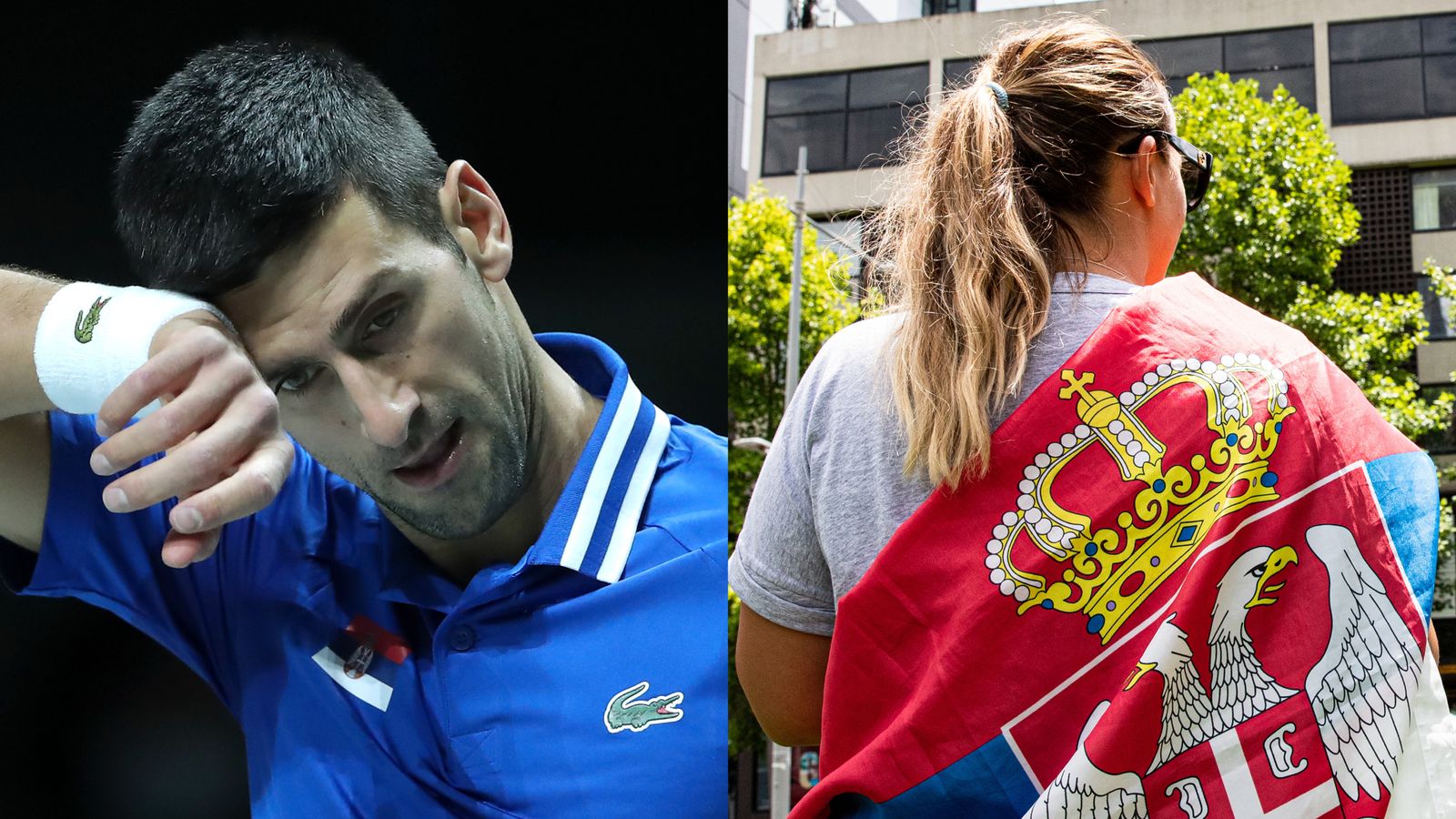
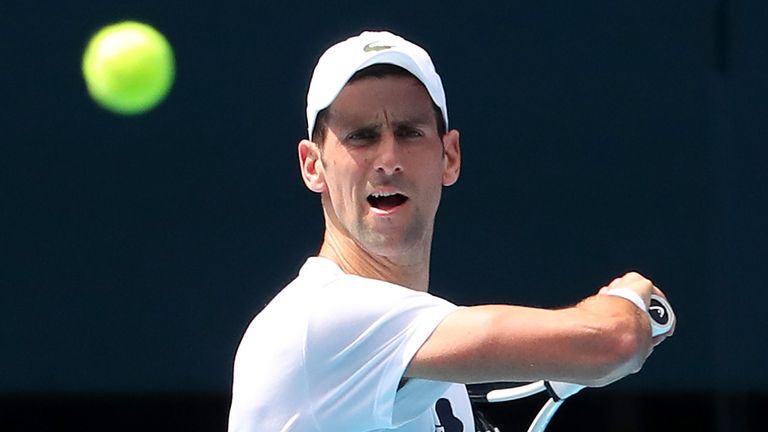
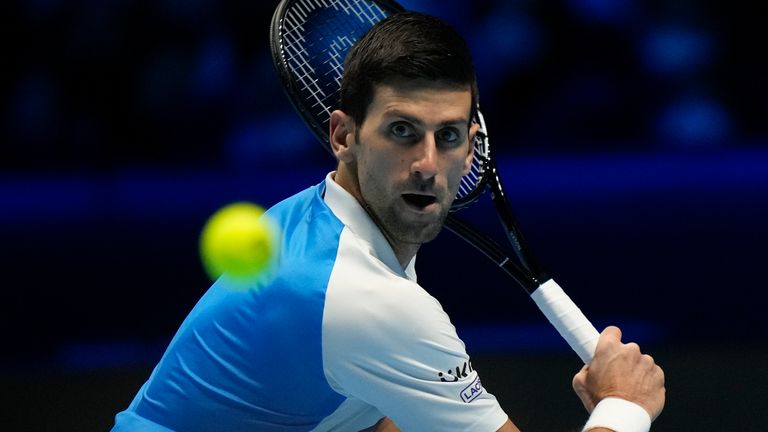
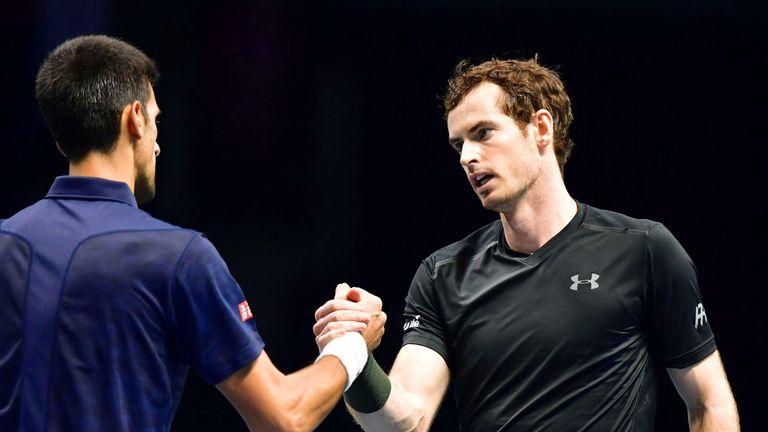
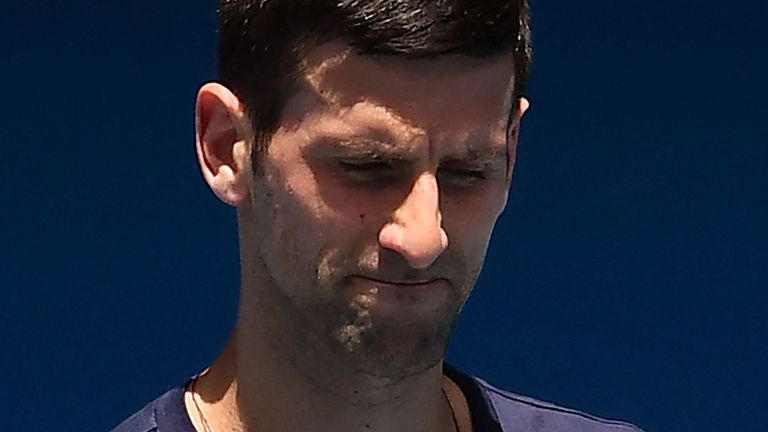
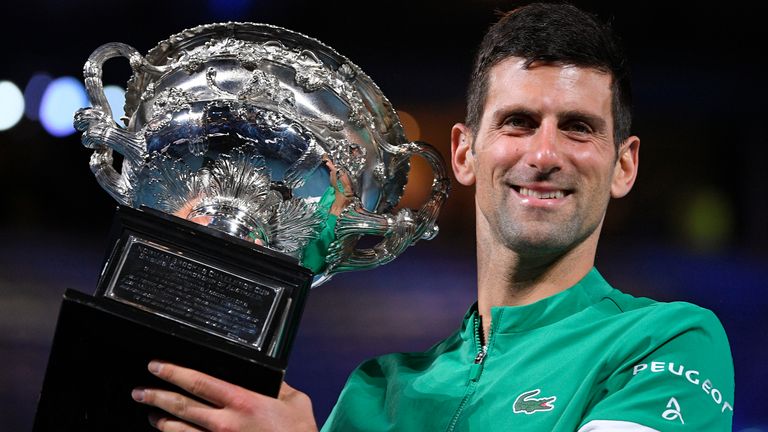
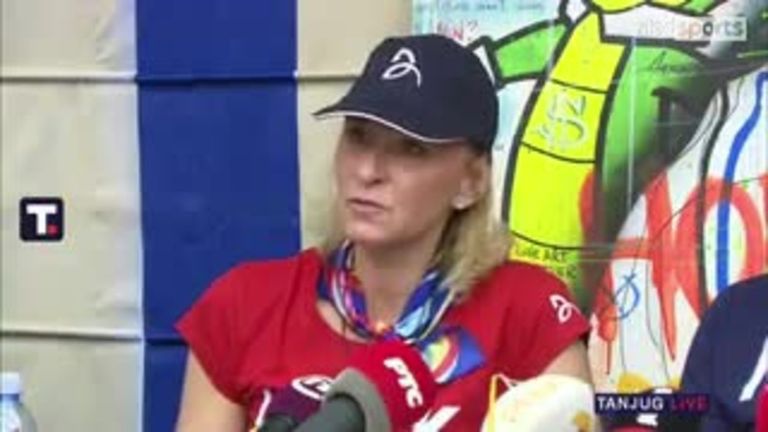
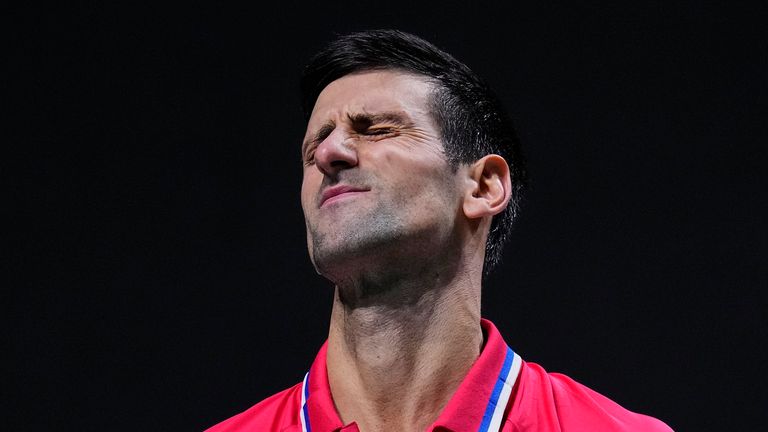
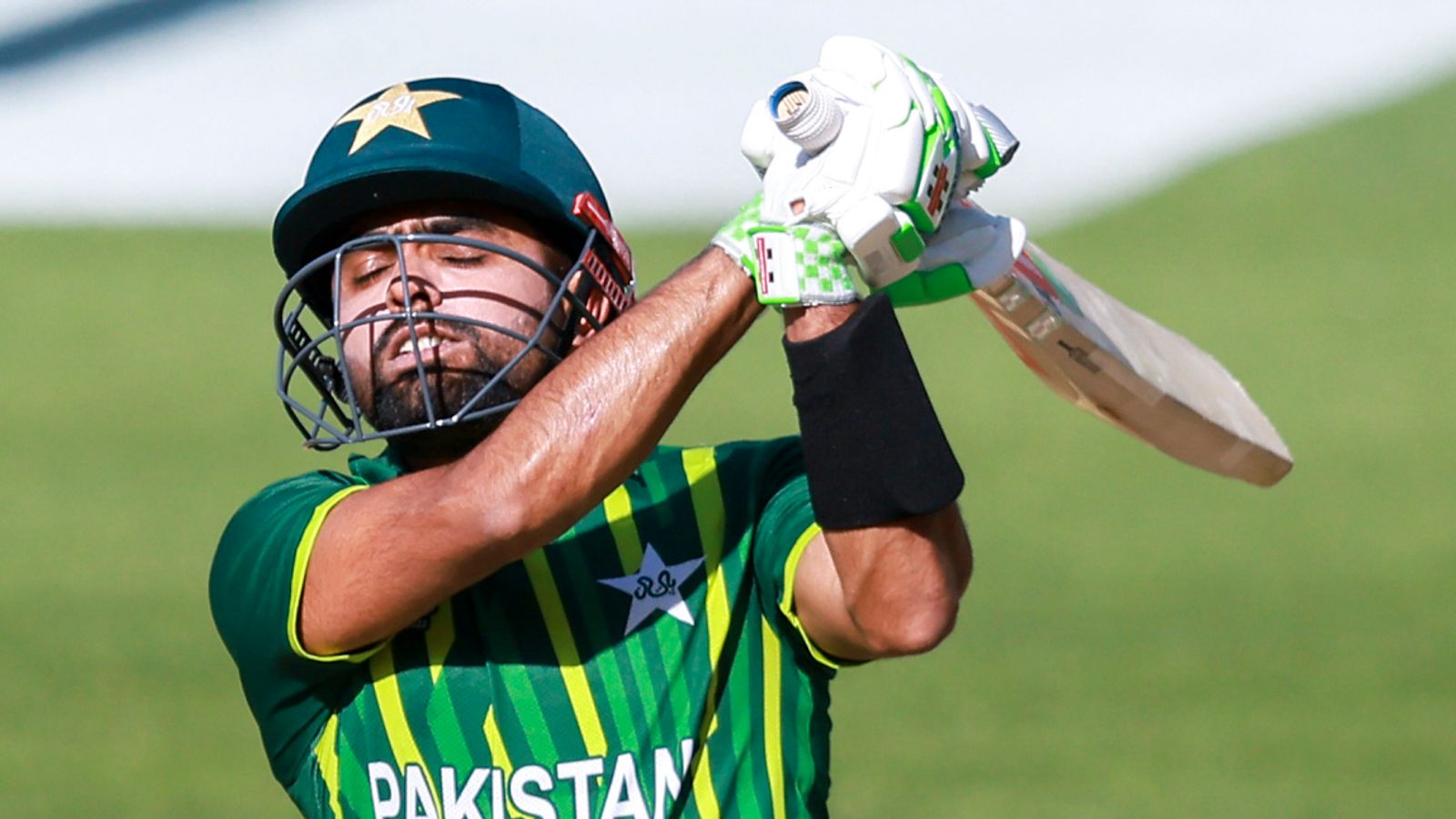
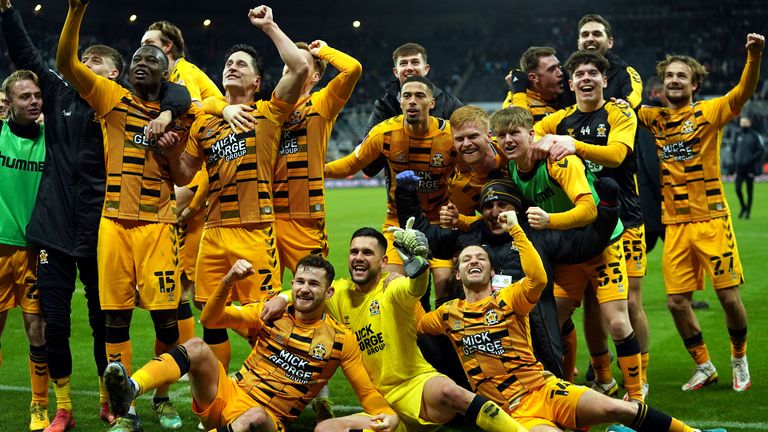
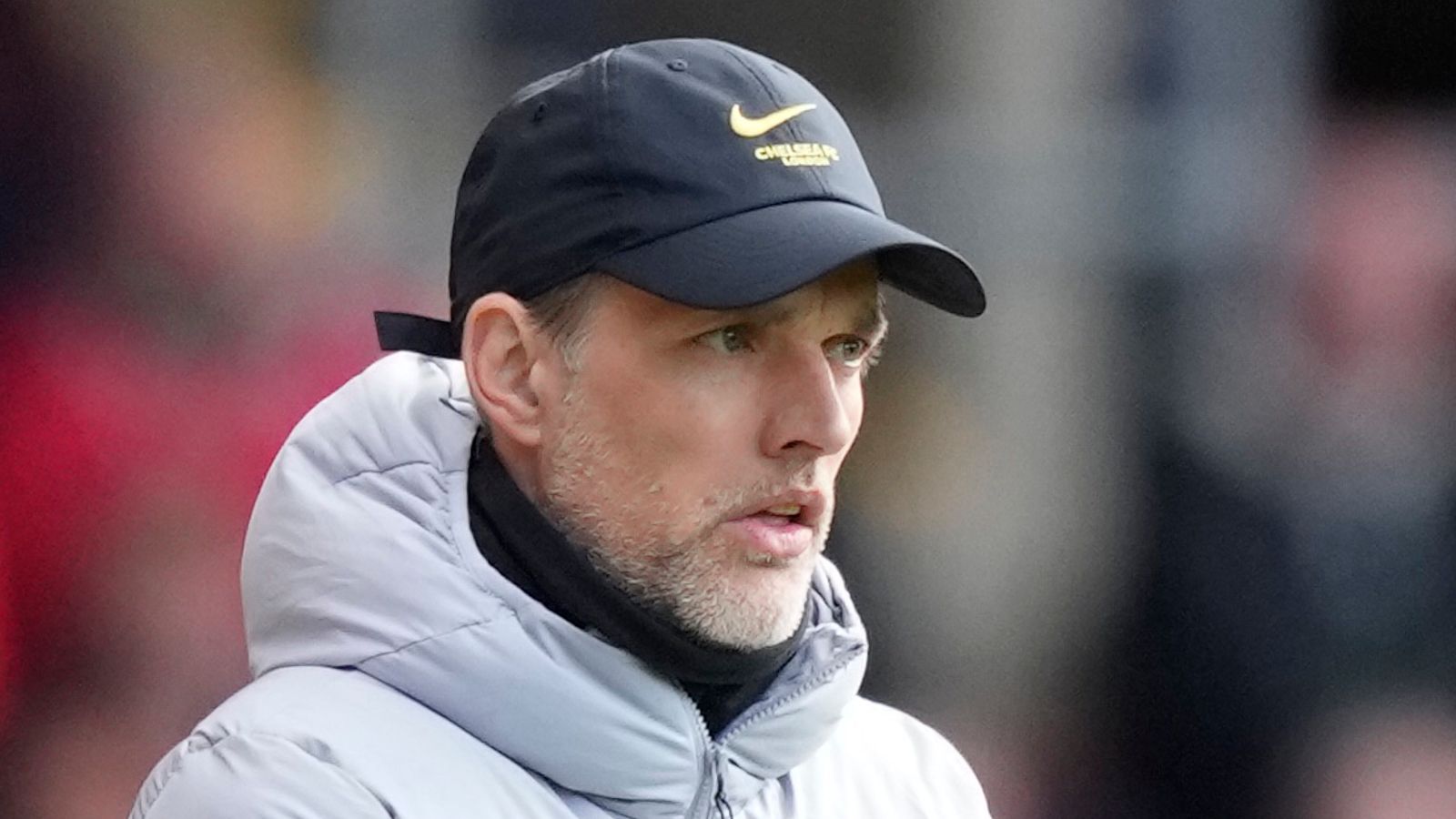
Pingback: 다시보기
Pingback: Dnabet.com
Pingback: Best universities in Africa
Pingback: http://asl.nochrichten.de/adclick.php?bannerid=101&zoneid=6&source=&dest=https://gas-dank.com/
Pingback: บทความหวยออนไลน์ lsm99